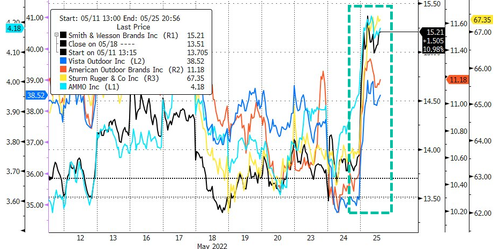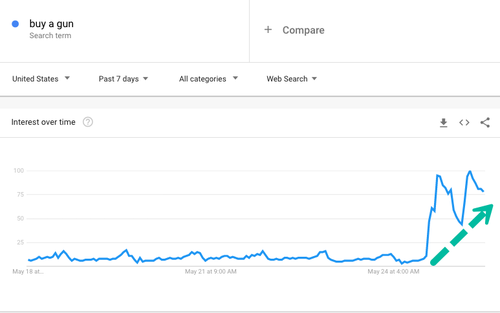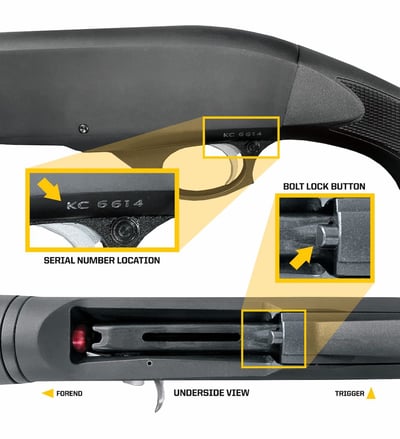Gun Owners Need to Think Like Supply Chain Managers Before the Next Ammo Shortage.
During the two years that COVID-19 has altered American life, we have seen shortages of goods ranging from toilet paper and N95 masks to semiconductors and new cars. The supply chain disruptions that fueled those shortages often followed a general pattern.
- Unexpected demand caused booming sales for a given product.
- Retailers and manufacturers depleted their inventories of that product.
- Supply chain bottlenecks such as temporary Covid-related factory closures or delayed shipments prevented firms from replenishing their inventories, leading to stockouts, rationing, and higher prices.
- With their resources and options limited, manufacturers and retailers streamlined their offerings, focusing on their most popular products while abandoning niche items.
While gun and ammunition supply chains are unique in some ways, they have experienced many of the same problems and trends seen in other industries during the pandemic.
Below, we examine how gun and ammo supply chains performed in the face of massive demand and outline supply chain principles that will help gun owners prepare for future shortages.
Firearm Supply Chains
When uncertainty looms, demand for guns surges. Anxiety over election outcomes, civil unrest, and increasing crime rates all fuel demand spikes. In fact, the connection between gun prices and the federal election cycle is strong and predictable enough to be classified as an economic law. But the COVID-19 pandemic raised the bar considerably.
Many gun buyers seem worried that the exponential spread of COVID-19 will lead to a season of hard-to-find essentials — of illness-related disruptions in the grocery supply chain — with angry have-nots out to steal from the haves.
From the Washington Post . . .
Speaking to the Charlotte Observer, a North Carolina [firearms retailer] said, “Our new motto is, ‘Dedicated to helping you protect your toilet paper.’”
The coronavirus, supply chain disruptions, social unrest, federal economic stimulus, and a lockdown-fueled spike in durable goods spending caused unprecedented demand for guns. FBI mandatory background check records dating back to 1998 show that 2020 and 2021 saw eight of the ten busiest days for background checks and nine of the ten busiest weeks. More than 5 million Americans became first-time gun owners between January 2020 and April 2021.
While some supply chains would have buckled under such pressure — particularly during a global pandemic — the American firearms supply chain performed fairly well. Prices rose, but that was inevitable given record demand. And though some retailers experienced stockouts of popular models, they were often able to offer satisfactory alternatives from various domestic and foreign manufacturers. The robust secondary market for used guns acted as a final backstop for buyers.
Ammunition
While consumers were able to buy guns without too much hassle, finding ammunition proved far more difficult. This is a classic example of how fluctuations can be magnified through a supply chain.
Changes in firearm demand cause even larger changes in ammunition sales. Firearms are durable goods that can be passed down for generations if correctly maintained. And though ammunition has a long shelf life if properly stored, a marksman may go through hundreds of rounds with a single gun during a visit to the range, so each gun sale causes demand for many more bullets.
As new and longtime gun owners reacted to the pandemic’s uncertainty by stocking up on hundreds or thousands of rounds — and media reports about bare gun store shelves fanned the flames — ammunition manufacturers could not meet the demand.
Several factors contributed to the ammunition shortage. For example, while there are dozens of American ammo manufacturers, only four produced primers when the pandemic began. With domestic primer production capacity stretched to its limits and a primer shortage serving as a bottleneck to ammo production, some manufacturers began the lengthy process of sourcing and importing European and Asian-manufactured primers.
Manufacturing and shipping disruptions also interrupted the flow of foreign-made ammunition into the country. And while imports of Russian ammo helped mitigate the shortage early on, the Biden administration restricted those imports in September 2021 as part of its sanctions against Russia for the poisoning of Alexei Navalny, a vocal critic of Vladimir Putin.
While the shortage affected all types of ammunition, eventually popular calibers like 9mm handgun bullets and .223 rifle cartridges were easier to find than some of their more obscure counterparts.
This reduction in product variety (so-called “SKU reduction”) is a typical coping mechanism for stressed supply chains. Managers allocate scarce production capacity to their most popular offerings. You have probably noticed this in your local grocery store: while your favorite brands are still on the shelf, fewer sizes or flavors are available.
The shortage was amplified by ammunition manufacturers’ reluctance to invest too heavily in new productive capacity to meet record demand that will eventually wane. Firms in other industries made similar calculations during the pandemic, but few industries have experienced the severe “boom or bust” cycles ammo companies have seen in recent decades.
Executives who saw massive demand during Barack Obama’s presidency give way to a four-year long “Trump slump” know full well that this too shall pass.
Additionally, it is not too conspiratorial to fault big business collusion for the shortage. Two entities — Olin Corporation and Vista Outdoor — own most major American ammunition companies, so it was fairly easy to unify the industry in choosing “market stability” (and high prices) over new and risky investment in production capacity.
Supply Chain Principles for Gun Owners
The pandemic has dramatically raised public awareness that supply chains exist and can be disrupted. While that was not news to longtime gun enthusiasts who have experienced previous ammunition shortages, we will highlight a few core principles of supply chain management that should help all gun owners weather the next shortage, whenever it may come.
- Flexibility – When the pandemic began, companies who were able to quickly adjust their manufacturing, sourcing, product development, and shipping plans fared much better than their inflexible competitors. During an ammunition shortage, those who own guns of various calibers and those who have firearms with interchangeable barrels that can accept multiple kinds of ammunition are much better positioned than those who rely on a single type of ammo.
- Demand Forecasting – Retailers and manufacturers plan their yearly operations using demand data from recent years (though that historical data had little value during what will hopefully be a once-in-a-century pandemic). Once the current shortage ends, recent history suggests that demand will go up when a Democrat is president and down when a Republican is in office. Given ammunition’s long shelf life, it makes sense to stock up when low demand drives down prices.
- Inventory Management – Just-in-time inventory management is a thing of beauty when it works well, as it generally did during the three decades preceding the pandemic. But recent supply chain disruptions have led some firms to take more of a just-in-case inventory approach that involves holding more safety stock. Gun owners may be wise to follow this trend as well, and keep a bit of extra ammo on hand just-in-case.
- Procurement Diversity – The pandemic has shown companies the dangers of relying on one region, country, or factory to provide key inputs. Similarly, the ammunition shortage shows that it is important for gun owners to build relationships with fellow enthusiasts and multiple shop owners whom they can rely upon when the next shortage hits.
A final principle for gun owners is to adopt a strategy of total quality management—of pursuing excellence at each stage of the supply chain, from gun and ammunition purchase to firearm cleaning and maintenance after a day at the range.
In the end, the purpose of the firearms supply chain is “rounds on target.” This requires excellence in marksmanship, which in turn requires excellence in training and equipment. Higher-order competence in “delivery” cannot exist without competence in the earlier stages of the supply chain: procurement, and inventory management.
Andrew Balthrop is a research assistant at the University of Arkansas Sam M. Walton College of Business. Ron Gordon is a Supply Chain Communications Specialist at the University of Arkansas Sam M. Walton College of Business. Doug Voss is a Professor of Logistics and Supply Chain Management at the University of Central Arkansas.



 If your SA-410 Shotgun is among those listed, please do not load, fire, or use your SA-410 Shotgun and contact us immediately to arrange to have your shotgun upgraded free of charge, using the following steps:
If your SA-410 Shotgun is among those listed, please do not load, fire, or use your SA-410 Shotgun and contact us immediately to arrange to have your shotgun upgraded free of charge, using the following steps: